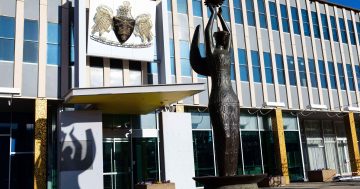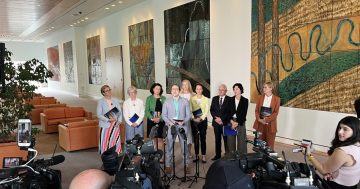
The expansion of the ACT Legislative Assembly will contribute to more effective governance. File photo.
With the turmoil of federal politics last week, you could be forgiven for missing the announcement that the ACT Government has expanded its Ministry – adding new portfolios and an eighth Minister to the Cabinet. This has been flagged for some time as the next part of the evolution of our local parliamentary governance, after the expansion of the Legislative Assembly from 17 to 25 members in 2016.
While the general community may not have a strong sense of the need for this expansion, this does have the potential to improve political decision-making in this town. This change will mean that the many topics our Government needs to be across can be shared by a larger number of Government members.
It is always important to remember how our political system compares to the rest of the country. While we are a small jurisdiction, we still have most of the responsibilities of the other States and Territories, just with fewer resources to manage them. Even with the expanded Assembly, we have some of the lowest levels of representation at a state and local level. In particular, here in the ACT we have 25 political representatives, which is the same as the Northern Territory with their population edging towards a quarter of a million people, and much less than the 40 representatives in Tasmania with its population of around half a million people. We are all very aware of our lack of representation at a national level which sees our status as a Territory afford us only two Senators to each of the State’s 12 Senators.
The results of our system mean that we expect our local political representatives to take on a very wide range of responsibilities on our behalf. Our system of government is unique in that it combines the functions of local government and state responsibilities, thus removing a whole layer of government. This style of government has aimed to strike the balance of governing very local issues of rubbish and pavements up to the big issues such as education and healthcare. While this approach has great potential in relation to ensuring consistency and integration, it also means that political decision-makers have a huge volume of work to be across, as well as a need to understand the depth of issues, and the need to consider localised impact as well as jurisdiction-wide implications.
The wide array of responsibilities that are required of our political decision-makers is often displayed when listening to local ABC’s flagship segment Chief Minister’s Talkback, where the Chief Minister is quizzed on a huge array of issues – from the detail of a street intersection to the complexity of a Council of Australian Government (COAG) negotiation. While the new Ministerial arrangements still see members of Cabinet with a number of Ministerial portfolios, this will now be shared with an additional member.
It’s easy to be cynical about the value of politicians. Indeed, a report released earlier this year by the Australia Institute found people wanted fewer politicians. This sentiment is likely to be even higher after recent events in federal politics. I am often surprised how few people are really engaged with our local political scene. In fact, its still common to hear people dismissing our Legislative Assembly as nothing more than the local council, actively questioning the need and expense of a Legislative Assembly and pointing to the fact that Canberrans voted against self-government prior to its introduction as proof that we don’t need this system. In contrast, my view is that, like any other community, Canberrans should have the right to be democratically governed, to elect the representatives that will make political decisions that will impact on our daily lives and have the same rights of self-determination and decision making.
In relation to the recent announcement around a new Minister and some new Ministerial responsibilities, I am particularly interested to see the addition of a portfolio of social inclusion and equality to the Chief Minister’s range of responsibilities. This is a chance to bring the increasing inequality that is creeping into this town into focus and introduce meaningful programs that can reverse this trend – in areas such as homelessness, income inequality, and for marginalised communities. I will be watching closely how this may increase the Government’s ability to ensure that all Canberrans are able to share in the benefits of this beautiful city and we continue to make sure that this community is the most inclusive, progressive and supportive community in Australia.
What do you think about the expansion of the ACT Government Ministry? Do you think it will improve the quality of political decision making in Canberra?





















